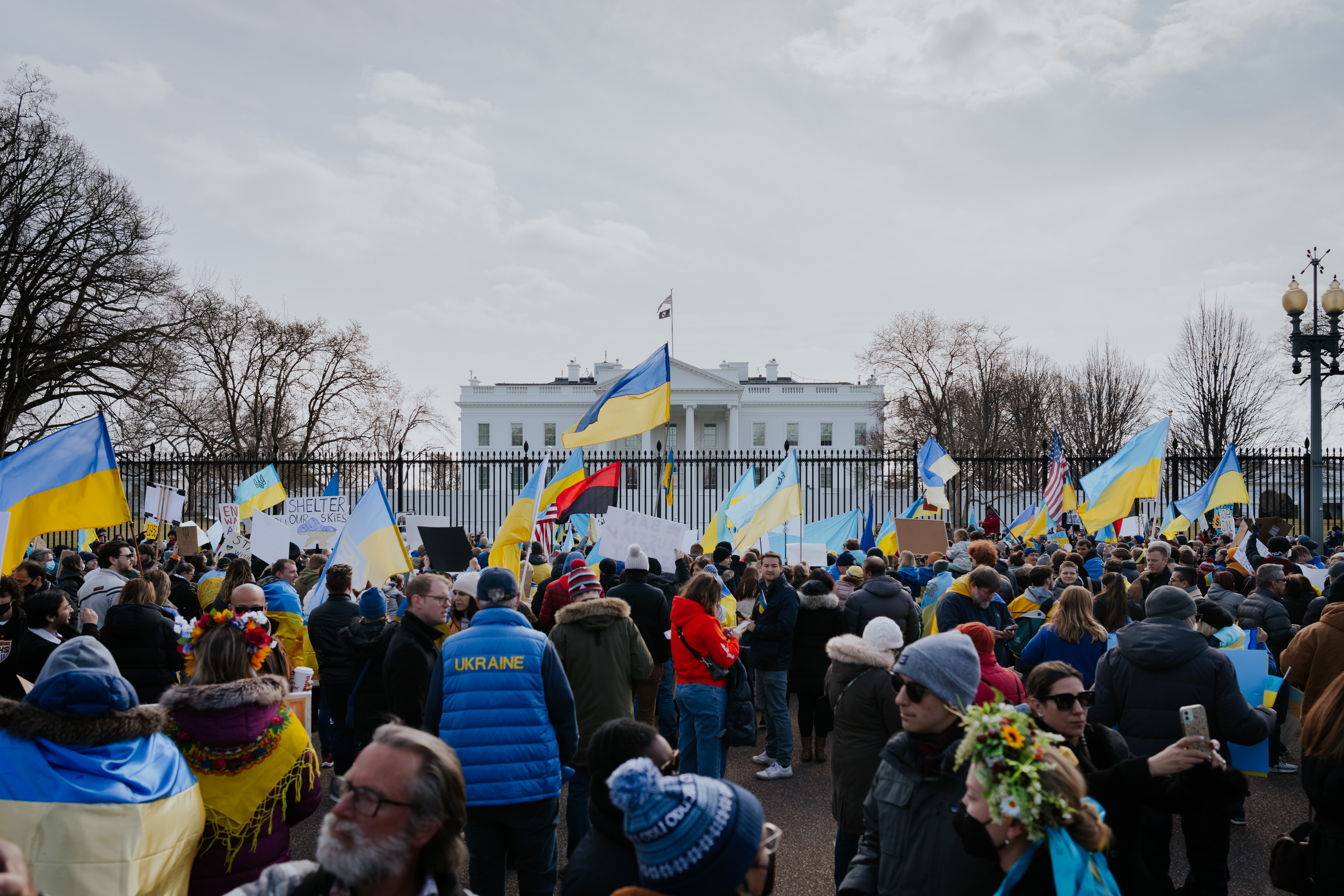Faith Community Responds to Russian Nuclear Threats
Groups urge leaders to seek diplomatic solution to war, reject nuclear weapons, and support nonviolent resistance.
Groups urge leaders to seek diplomatic solution to war, reject nuclear weapons, and support nonviolent resistance.
The following article was published in the November-December 2022 issue of NewsNotes.
The faith community continues to respond to the war in Ukraine, and particularly to threats by Russian President Vladimir Putin to use nuclear weapons. Faith leaders have condemned the Russian invasion of Ukraine, attacks on civilians, and President Putin’s nuclear threats. They have warned world leaders not to escalate the conflict, urging them to pursue diplomacy and negotiate peace. The heightened risk of nuclear war has also led religious leaders to call with renewed urgency for nuclear disarmament.
The Maryknoll Office for Global Concerns joined twenty-six other organizations in signing an interfaith letter to President Biden urging him to “explore every avenue of dialogue, diplomacy, and negotiation to ease tensions with Russia, end the bloodshed in Ukraine, and eliminate the nuclear threat to all humankind.” The Hindu, Buddhist, Catholic and Protestant Christian, and other interreligious groups told the president:
We share a moral responsibility to de-escalate tensions, return to negotiations, and realize a world without nuclear weapons. Nuclear weapons are incompatible with our fundamental respect for human dignity. They threaten our planet, communities and families… As United Nations Secretary General Antonio Guterres stated, “their elimination would be the greatest gift we could bestow on future generations.”
MOGC also led 29 national Catholic organizations in an appeal to President Biden, that his Catholic faith might guide him to pursue diplomacy, peace, and disarmament.
Pope Francis has continued to repeat with prophetic insistence that no war is just. While people have the right and obligation to defend themselves, the pope warns that doing so with arms may simply led to more war, which is immoral. In a new book, “I Ask You in the Name of God. Ten Prayers for a Future of Hope,” published in Italian in October, Francis writes, “War must end or (the) world risks nuclear catastrophe,” reiterating that recent events “compel me to add, unambiguously, that there is no occasion in which a war can be considered just.” As reported by Vatican News, Francis concludes the book by asserting that “the choice to follow the path of nonviolence and continued existence lies with us.”
Ukrainians seeking to follow the path of nonviolence met with international groups in Kyiv in August. Eli McCarthy with Pax Christi International’s Catholic Nonviolence Initiative joined European partners on the delegation. They heard first-hand stories of nonviolent resistance, from farmers refusing to sell grain to Russian soldiers to firefighters refusing to participate in occupation government, to engaging Russian civilians on the realities of the war. They asked that global citizens not abandon them, but 1) share their examples of nonviolent resistance, 2) advocate for the governments of Ukraine and other countries to support them by developing their own nonviolent strategies of noncooperation, and 3) aid them with funds, training, and digital security.
A report published in October analyzing “Ukrainian Nonviolent Civil Resistance in the Face of War,” concludes that it has hindered Russian military and political goals, undermined Kremlin power, served to protect civilians, increased community resilience, strengthened local governance and social cohesion, and led to greater accountability. Scholars have mapped 235 examples of nonviolent action in Ukraine since March. The report offers a set of ten recommendations for supporting further nonviolent civil resistance. Nonviolent Peaceforce has deployed a rapid response team to support action on the ground.
Meanwhile, as Russians protested the war and thousands fled military recruitment, the acting general secretary of the World Council of Churches, Fr. Joan Saúca, met with one of the WCC’s most important members and the war’s most prominent defenders, Patriarch Kirill, head of the Russian Orthodox Church, on October 17 in Moscow. “The reason for coming here is to see what we can do together to build bridges of peace and reconciliation and stop the bloodshed and the danger of nuclear conflagration,” Fr. Sauca said. “I think it would very helpful now to make the same statement, saying clearly to the world what you told us, here, today: stop the bloodshed, stop the killing, stop the destruction of infrastructure, look for peace and reconciliation.” Patriarch Kirill blamed the war on political powers, not churches, and spoke defensively of the soldier who “has to defend himself and his life or to give his life for the lives of the others.” Yet, the two Christian leaders were able to agree that “War cannot be holy.” “As peacemakers,” said Kirill, “we have to make all efforts to bring peace through dialogue and avoid any conflict or violence.”§
Faith in Action: Read the report on Ukrainian Nonviolent Civil Resistance at https://bit.ly/UkraineNV, and write to President Biden at https://bit.ly/UkraineAction
Photo by Yohan Marion publicly licensed by Unsplash

